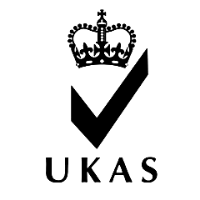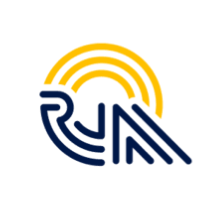What is ISO 15189?
ISO 15189 Medical laboratories — Requirements for quality and competence is an international standard that specifies the quality management system requirements particular to medical laboratories. The standard was developed by the International Organisation for Standardization’s Technical Committee 212 (ISO/TC 212).
ISO/TC 212 assigned ISO 15189 to a working group to prepare the standard based on the details of ISO/IEC 17025:1999 General requirements for the competence of testing and calibration laboratories.
This working group included the provision of advice to medical laboratory users, including specifics on the collection of patient samples, the interpretation of test results, acceptable turnaround times, how testing is to be provided in a medical emergency, and the lab’s role in the education and training of health care staff.
While the standard is based on ISO/IEC 17025 and ISO 9001, it is a unique document that takes into consideration the specific requirements of the medical environment and the importance of the medical laboratory to patient care.
Benefits of ISO 15189:2012
Cost-saving
Continual improvement
Globally recognised
Risk reduction
Legally compliant
Improved team morale
ISO 15189:2012 Video
Who can be Certified ISO 15189:2012?
Laboratory testing is incredibly important in the delivery of information-based healthcare outcomes – this is incredibly important in a world where decisions need to be driven by facts, science, and data. Any medical laboratory that wants to deliver clinically relevant results that meet the highest ethical standards should become ISO 15189 accredited.
Medical Lab
Pathological Lab
Who can issue this Accreditation?

UKAS

GAAS

QASL

IAS

NABCB

RVA

DAR
Document required for ISO ISO 15189:2012
- System Manual
- System Procedure
- Policy
- Objectives
- Mission & Vision
- Standard Operating Procedure (SOP)
- Checklist
- Forms
- Formats
- Records
The extent of Documented Information differs as per:
- Scope of Certificate (Clinical Biochemistry,Clinical Haematology,Microbiology,Emphasis Disease Serology,Histopathology,Cytopathology,Flow Cytometry,Cytogenetics,Molecular Testing)
- Location
- Resource Availability
- Testing parameter cover
Role of Shamkris and Process of ISO 15189:2012
Shamkris adopts a results-oriented approach to effective system implementation in the organization. A simple and practical method of system implementation helps organizations increase business efficiency and sustainability. Shamkris supports 100% documentation to obtain an accreditation body of success in addition to enhanced performance.
The implementation process is described below:
Day 1
GAP Analysis, Cost Estimates, Application to Accreditation Body
• Finding the GAP between existing system related to Accreditation Body requirements
• Application to Accreditation Body
• Based on the scope of your business & Accreditation Body you choose
Week 1
Developing Documents
• Management System Manual, Management System Procedures, Policy, Objectives, Forms etc.
• Review of Standard Operating Procedures (SOP)
Week 4
Implementing Management System
• Awareness training for the top management and staff
• Implementing a well-documented management system throughout the organization>
Week 8
Internal Audit, MRM, CAPA
• Internal audits identifying nonconformities related to Accreditation Body requirements.
• Management Review Meetings.
• Corrective and Preventive Action plan for nonconformities
Week 10
Accreditation Body, Audit, N-C Closing
• Shamkris acts on your behalf and assists you in the third-party audit
• Closing of any nonconformities identified by the Accreditation Body
Week 12
Accreditation Body
• Accreditation certificate issued for 3 years
• Surveillance Audits yearly
Year on Year
Yearly Compliance
• Support of Yearly documentation for audit
FAQ
ISO 15189:2012 is a regulatory standard for medical labs. Its criteria help labs develop quality management systems and assess their own competence. The standard is also used by regulators, accreditation bodies and customers to confirm or recognize a lab’s competence.
ISO 15189:2012 is an international standard for medical laboratories. Laboratory accreditation helps labs develop quality management systems, assesses their competence and ensures they are functioning in line with industry and legal standards.
Clause 5.1. 6 of ISO 15189 states “ personnel shall have training specific to quality assurance and quality management for services offered.” Although ISO 17025 requires the lab to identify the training needs of personnel and provide the relevant training, the emphasis on continuing education is greater in ISO 15189.
